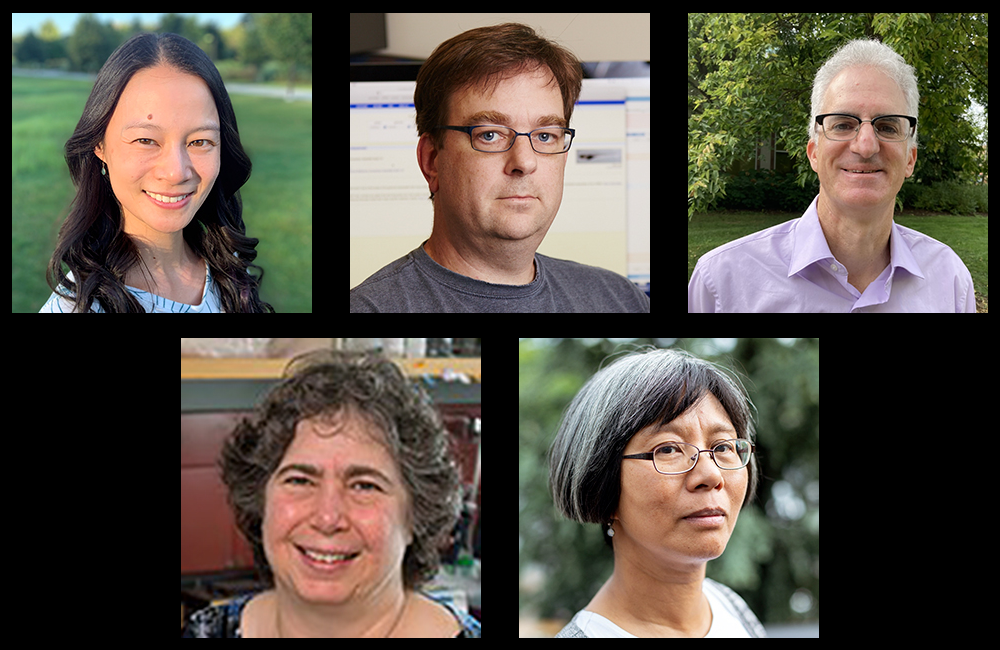We are pleased to announce the election of five new leaders to the GSA Board of Directors:
2023 Vice President/2024 President
Mariana Wolfner
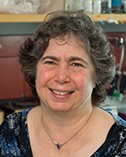
Distinguished Professor of Molecular Biology and Genetics and Stephen H. Weiss Presidential Fellow
My research has focused on the genes and pathways that mediate sexual development and reproduction, primarily in Drosophila. From my undergraduate research on yeast and a very recent mouse-mutant made by a co-mentored student in my lab, I also feel professional kinship with geneticists who study other systems. I teach an upper-level course on genetic methods for dissecting cellular and developmental processes, and I previously taught developmental genetics. On top of that, I have participated in local outreach efforts to bring genetics to middle school students.
As Vice President, I will work hard to further GSA’s mission of supporting geneticists, genetics research, and genetics education and outreach. My main priorities include continued community building and information dissemination to the research community, efforts to keep the importance of basic genetics research front-and-center to funding agencies and legislators, and responding to financial pressures on society journals. Another priority is to continue GSA’s efforts to be a central resource for genetics mentors and educators about principles of genetics as well as how genetics has been used (or misused) in the past and lessons to heed for the future. Another priority is to support and retain the excellent GSA staff who, often unseen, do so much to keep the community connected and vibrant. And it is a priority to do all of these in a way that fosters the inclusiveness of GSA, welcoming and supporting all members of its diverse community in all ways.
Treasurer (2023-2025)
Tin Tin Su
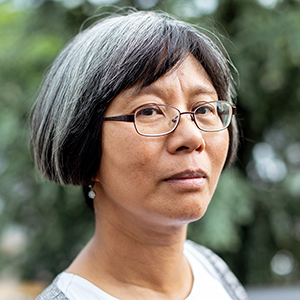
Professor, University of Colorado, Boulder and Program Leader, University of Colorado Cancer Center
My reason for wanting to be on the GSA Board is to repay for all the support I have received throughout my career. I had not seen a fruit fly under the microscope until I began my post-doc with Pat O’Farrell at University of California, San Francisco. I grew up in Burma, finished high school in India, and came to the US to start college as a chemistry major. As a graduate student at Carnegie Mellon University, I spent hours in the cold room purifying enzymes for a biophysics project on DNA topology. Therefore, seeing my first Drosophila was an intimidating experience—so beautiful and yet so many moving parts! My experience at the first GSA meeting I attended, an Annual Drosophila Research Conference, was equally intimidating. But I kept going back because I increasingly felt that I belonged. I felt supported and heard. I felt my students and postdocs could get the support they needed. I know now that GSA does much more than run conferences. I am grateful for its efforts to give geneticists a voice, to keep lines of communication open through journals in addition to conferences, and to support geneticists of all backgrounds, persuasions, and career stages.
At the University of Colorado, I have been teaching undergrads since 1999, have published research papers on pedagogy, and have served as the departmental Director of Graduate Student Affairs. In the Drosophila community, I have co-organized Fly Meeting workshops, served on the Larry Sandler award committee, chaired the organizing committee for the 2018 Fly Meeting, and served as the President of the Drosophila Board. I advocate for model organism research during NIH grant reviews; and, I am currently on my fifth stint as a study session chair. I am active in mentoring and diversity and inclusion efforts at my institution as well as in neighboring states to make laboratory research accessible to non-traditional students. I plan to bring my abilities, guided by experience, to the GSA Treasurer position.
Directors (2023-2025)
Daniel Barbash
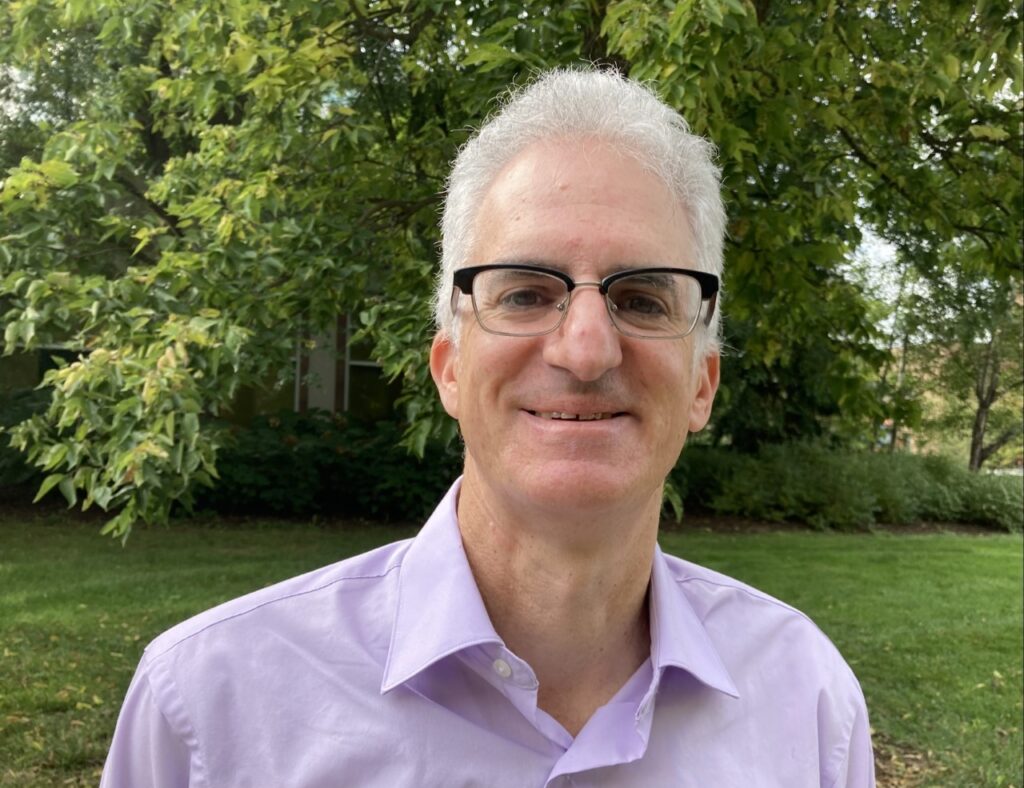
Professor and Chair of Molecular Biology and Genetics Department, Cornell University
We use Drosophila to investigate the genetic barriers that evolve between populations and species to cause reproductive isolation. These barriers include preferences of populations to mate among themselves and to avoid mating with other populations, and sterility and lethality phenotypes that evolve in interspecific hybrids. A major open question in these areas is to identify the evolutionary forces within species that drive these reproductive barriers.
I look forward to working with our colleagues to maintain the prominence of the GSA and strengthen its ability to be a leader in supporting the training and development of junior scientists, publishing successful and well-respected journals, and advocating for genetics and biological research at the national and international levels. The GSA has shown great foresight in adapting to the changing needs of our community over the last decades, including launching the G3 journal, prioritizing career development initiatives, increasing policy-related activities, and rethinking how to successfully plan and organize conferences. I will strive to contribute to these efforts and to represent the interests of the population and evolutionary genetics communities in the GSA.
Shawn Burgess

Head, Developmental Genetics Section, National Human Genome Research Institute and Adjunct Faculty, University of Maryland, College Park
I received a PhD in Genetics from the Johns Hopkins University School of Medicine, where I studied the genetics of mitochondrial fusion and fission in yeast. I trained with Nancy Hopkins, PhD, at the Massachusetts Institute of Technology, where I was part of a large effort to develop insertional mutagenesis in zebrafish, coupled with a genetic screen to identify genes essential for early development of a vertebrate. Since 2001, I have been at the National Human Genome Research Institute, where I am a senior investigator and head the Developmental Genomics section.
For over 20 years, I have used zebrafish genetics and genomics to study inner ear development and regeneration. Starting with my postdoctoral work, and now central to my research at the NIH, my goal has been to develop resources and techniques that will benefit not just my own research, but the broader zebrafish community. My lab has generated thousands of mutations in zebrafish genes through retroviral integration and freely distributed them. We developed robust protocols for gene targeting through CRISPR and shared them widely. My lab helped develop one of the first microarrays for zebrafish research. We categorized over 14 million SNPs in the zebrafish genome and generated a semi-inbred fish line for the community. I have also significantly contributed to the zebrafish community through participation in various scientific advisory boards and boards of directors. In particular, I have been on the advisory board for the zebrafish data website zfin.org for ten years and on the Alliance of Genome Resources advisory board for five years. These resources are essential to the success of model organism research, and if I were to join the board of GSA, protecting these data hubs would be a central issue for me.
Teresa Lee
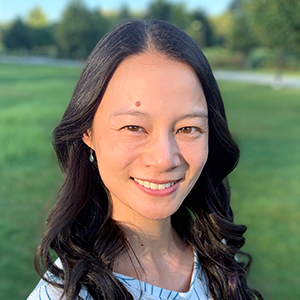
Assistant Professor, University of Massachusetts, Lowell
A lifelong Tar Heel, I graduated from the University of North Carolina at Chapel Hill with honors in Biology and Creative Writing. As an undergrad, I studied telomere structure in the lab of Shawn Ahmed. I received my PhD in Molecular and Cell Biology at the University of California, Berkeley, where I was supported by an NSF Graduate Research Fellowship. There, I worked with Barbara Meyer on how chromosome structure regulates crossover recombination during meiosis. For postdoctoral training, I moved to Atlanta to work with David Katz at Emory University investigating how the transgenerational inheritance of chromatin landscapes affects lifespan. With the support of an NIH IRACDA postdoc fellowship, I have developed and taught classes at Clark Atlanta University, the Emory-Tibet Science Initiative, and Oglethorpe University. I care deeply about inclusive teaching and thoughtful mentoring. Outside of lab, I can be found in a coffeeshop, on my yoga mat, exploring the city, or (most likely) reading a book.
I am excited to work with the GSA because the Society values excellent science and the people who do it. Our country has a tangled history with the use of genetics as tool of exclusion, whether by race, sex, or disability status. I’ve been impressed with GSA’s commitment to address this past, in part by creating a space that genuinely welcomes those that have historically been excluded from becoming biologists. Cultivating inclusive spaces is the first step—the next is to ensure that scientists, especially those from historically excluded populations, have the support they need to flourish. As a Board member, my priority is to further deepen GSA’s support for historically excluded populations and generate resources that benefit all researchers. This might include extending professional development efforts for early career scientists or providing strategies for members interested in equity and inclusion initiatives. Despite being a junior PI, I have led institutional initiatives that promote supportive mentoring environments for early career scientists, both as a PhD student and a postdoc. At University of Massachusetts, Lowell, I work closely with our program for first-generation college students, in part to develop course-based undergraduate research experiences that can help make research truly equitable for all students. I look forward to applying this experience toward GSA’s existing programs and working with the Board to build new ones.


